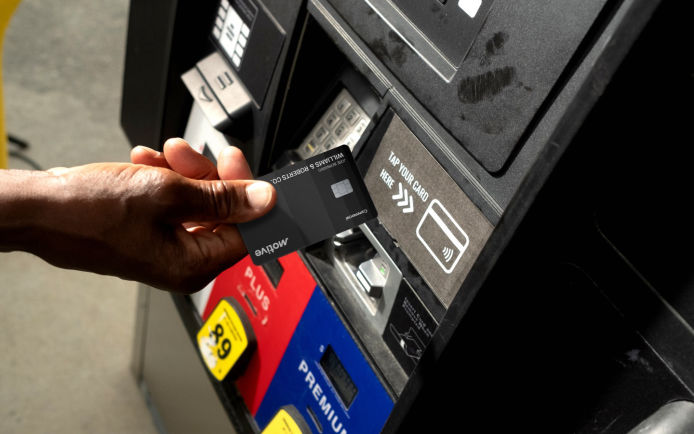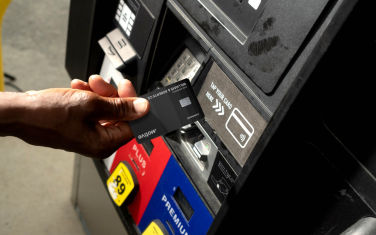Understanding Fleet Fuel Cards
Fleet fuel cards are specialized payment instruments designed exclusively for purchasing fuel and, in some cases, vehicle-related expenses. They offer businesses enhanced control over fuel spending and provide detailed reporting features. For example, Sunoco offers two primary fleet fuel cards:
Sunoco Business Fleet Card: Ideal for businesses seeking maximum savings, this card is accepted at over 5,000 Sunoco locations. It offers rebates of up to 6¢ per gallon, with no setup, card, or annual fees.
Sunoco Fleet Universal Card: Designed for flexibility, this card is accepted at 95% of U.S. gas stations and over 45,000 service locations. It provides rebates of up to 6¢ per gallon at Sunoco stations and includes features like spending limits and detailed reporting.
Advantages of Fleet Fuel Cards
Fleet fuel cards offer several benefits tailored to businesses managing vehicle fleets:
Cost Savings: Many fleet cards provide rebates on fuel purchases. For instance, Sunoco's fleet cards offer up to 6¢ per gallon in rebates, leading to substantial savings over time.
Enhanced Control: Fleet managers can set spending limits, restrict purchases to specific times or locations, and monitor transactions in real-time. This control helps prevent unauthorized spending and ensures compliance with company policies.
Detailed Reporting: Fleet cards provide comprehensive reports on fuel usage, driver behavior, and vehicle efficiency. These insights aid in budgeting, forecasting, and identifying areas for improvement.
Security Features: Unique driver IDs and PINs add a layer of security, reducing the risk of fraud and misuse.
Understanding Corporate Credit Cards
Corporate credit cards are general-purpose payment tools issued to employees for business-related expenses, including travel, lodging, meals, and sometimes fuel. They offer flexibility but may lack the specialized features of fleet fuel cards.
Advantages of Corporate Credit Cards
• Versatility: Corporate cards can be used for a wide range of expenses, not limited to fuel. This flexibility is beneficial for employees who incur diverse business costs.
• Rewards Programs: Many corporate credit cards offer rewards such as cashback, travel points, or other incentives, which can be advantageous for the company.
• Simplified Expense Reporting: Employees can consolidate various expenses on a single card, streamlining the reporting and reimbursement process.
Comparing Savings: Fleet Fuel Cards vs. Corporate Credit Cards
When evaluating which option yields greater savings for fuel expenses, several factors come into play:
Rebate Programs: Fleet fuel cards often provide direct rebates on fuel purchases. For example, Sunoco's fleet cards offer up to 6¢ per gallon in rebates. In contrast, corporate credit cards may offer rewards, but these are typically based on overall spending and may not be as substantial for fuel purchases specifically.
Spending Controls: Fleet cards allow for precise control over fuel expenditures, enabling businesses to set limits and monitor usage closely. This control can lead to more disciplined spending and reduced waste. Corporate credit cards, while versatile, may not offer the same level of control over fuel purchases.
Administrative Efficiency: Fleet cards streamline fuel expense tracking and reporting, reducing administrative burdens. Automated reports and real-time data help in quick decision-making and policy enforcement. Corporate credit cards may require more manual tracking and reconciliation for fuel expenses.
Security Measures: The security features of fleet cards, such as driver-specific PINs and purchase restrictions, minimize the risk of fraud. Corporate credit cards, lacking these specialized features, may be more susceptible to unauthorized use for fuel purchases.
Case Study: Implementing Fleet Fuel Cards for Enhanced Savings
Consider a mid-sized delivery company operating a fleet of 50 vehicles. By switching from corporate credit cards to fleet fuel cards, the company aimed to reduce fuel costs and improve expense management.
Implementation and Results
• Rebates Realized: With an average consumption of 10,000 gallons per month, the company benefited from a 6¢ per gallon rebate, resulting in monthly savings of $600.
• Improved Oversight: The fleet manager set spending limits and monitored transactions in real-time, leading to a 10% reduction in unauthorized fuel purchases.
• Administrative Streamlining: Automated reporting reduced the time spent on expense reconciliation by 15 hours per month, allowing staff to focus on other critical tasks.
This case illustrates how adopting fleet fuel cards can lead to direct financial savings and operational efficiencies.

